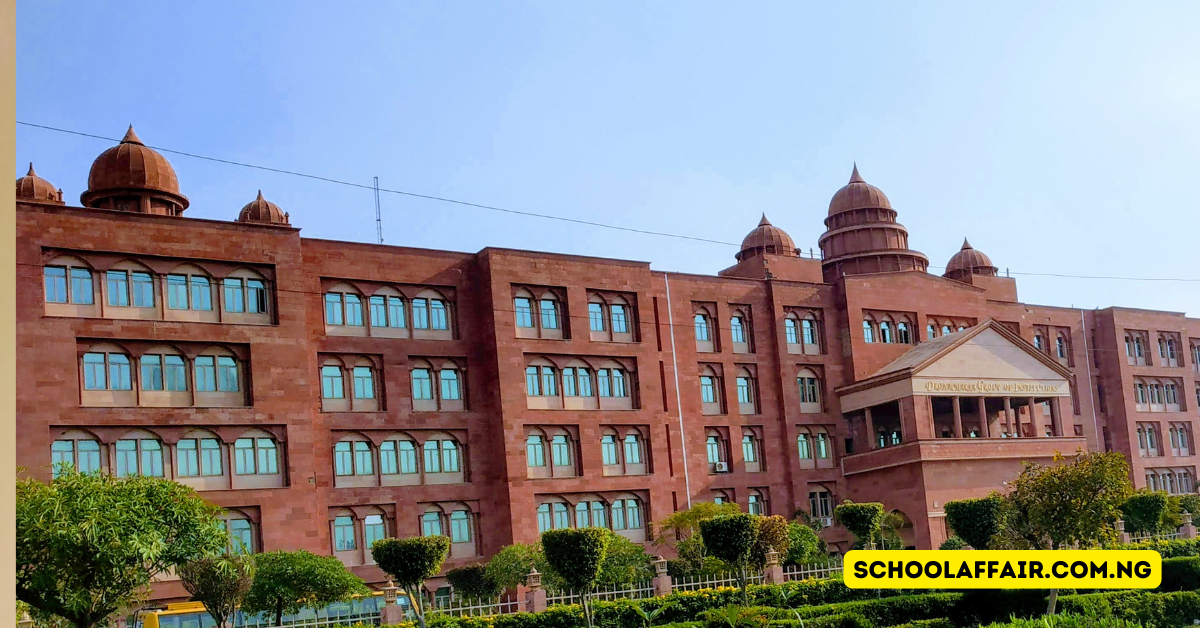A monotechnic is a higher institution providing vocational training in a specific discipline, typically taking two or three years to complete. In Nigeria, there are several monotechnics, each offering different disciplines. The educational scene is diverse, with numerous institutions focusing on specific areas of study.
Accredited federal, state, and private monotechnics and specialized institutions are essential for safety and quality. To attend a Monotechnic in Nigeria, it is crucial to look for approved institutions and check the list for accurate information.
Federal Monotechnics/Specialized Institutions:
- Federal School of Survey, Oyo:
- Location: Oyo, Oyo State.
- Federal Training Center, Calabar:
- Location: Calabar, Cross Rivers State.
- Federal Training Centre, Enugu:
- Location: Enugu, Enugu State.
- Federal Training Center, Kaduna:
- Location: Kaduna, Kaduna State.
- Federal Training Centre, Maiduguri:
- Location: Maiduguri, Borno State.
- Institute of Administration, ABU, Zaria:
- Location: Zaria, Kaduna State.
- Maritime Academy of Nigeria, Oron, Akwa Ibom State:
- Location: Oron, Akwa Ibom State.
- Metallurgical Training Institute, Onitsha, Anambra State:
- Location: Onitsha, Anambra State.
- National Water Resources Institute, Mando, Kaduna:
- Location: Mando, Kaduna.
- Nigerian Army School of Engineering, Makurdi, Benue State:
- Location: Makurdi, Benue State.
- Nigerian Army School of Finance and Administration, Apapa, Lagos State:
- Location: Apapa, Lagos State.
- Nigerian Army School of Signals, Apapa, Lagos State:
- Location: Apapa, Lagos State.
- Nigerian Naval Engineering College, Sapele, Delta State:
- Location: Sapele, Delta State.
- NITEL Training School, Oshodi, Lagos State:
- Location: Oshodi, Lagos State.
- Petroleum Training Institute, Effurun, Delta State:
- Location: Effurun, Delta State.
Approved private monotechnics in Nigeria:
- Nigerian Institute of Journalism (NIJ), Lagos State:
- Location: Lagos State.
- Wavecrest College of Catering, Surulere-Lagos:
- Location: Surulere, Lagos State.
Approved State Monotechnics in Nigeria:
- College of Administration and Business Studies, Konduga, Borno State:
- Location: Konduga, Borno State.
- College of Administration and Business Studies, Potiskum, Yobe State:
- Location: Potiskum, Yobe State.

General FAQs:
- What is a Monotechnic?
- A Monotechnic is an educational institution that focuses on providing specialized training and education in a specific field or discipline.
- How do Monotechnics differ from Polytechnics and Universities?
- Monotechnics typically offer specialized training in specific fields, while polytechnics cover a broader range of technical and vocational subjects. Universities, on the other hand, provide a more comprehensive and academic education.
- What are the key advantages of attending a Monotechnic?
- Monotechnics offer focused training, often leading to quicker entry into specific industries. They are known for practical, hands-on learning, preparing students for specific career paths.
Admission FAQs:
- How can I apply for admission to a Monotechnic in Nigeria?
- Admission processes vary, but typically, you need to obtain the institution’s admission form, meet the specified requirements, and follow the application procedures outlined by the Monotechnic.
- What are the common entry requirements for Monotechnic programs?
- Entry requirements may include specific academic qualifications, relevant certifications, and sometimes, aptitude tests or interviews. Requirements vary among institutions and programs.
Accreditation FAQs:
- How can I verify the accreditation status of a Monotechnic in Nigeria?
- The National Board for Technical Education (NBTE) is responsible for accrediting Monotechnics in Nigeria. Check their official website or contact them for the most up-to-date information.
- Are all Monotechnics in Nigeria accredited?
- No, not all institutions may be accredited. It’s crucial to verify the accreditation status with relevant authorities before applying.
Financial FAQs:
- Are there scholarship opportunities for Monotechnic students?
- Some Monotechnics offer scholarships, and external organizations may provide financial aid. Check with the specific Monotechnic’s financial aid office for available opportunities.
- What are the tuition fees like for Monotechnic programs?
- Tuition fees vary among Monotechnics and depend on the program and level of study. Prospective students should check with the respective Monotechnic for detailed fee information.
Programs and Courses FAQs:
- Can I transfer credits from a Monotechnic to a University?
- Transfer policies vary. It’s advisable to check with the receiving institution (university) for their specific transfer policies and guidelines.
- What types of programs do Monotechnics offer?
- Monotechnics typically offer programs focused on specific industries or fields, such as engineering, technology, business, health sciences, and more.
Alumni and Career FAQs:
- Do Monotechnics have strong alumni networks?
- Many Monotechnics have active alumni associations that provide networking opportunities, mentorship, and support for current students.
- How does a Monotechnic education prepare students for the workforce?
- Monotechnics often emphasize practical skills and hands-on experience, preparing students for specific careers by providing industry-relevant training.
Facilities and Resources FAQs:
- What kind of facilities do Monotechnics in Nigeria usually have?
- Facilities may include well-equipped laboratories, workshops, libraries, and specialized classrooms, depending on the nature of the programs offered.
- Do Monotechnics offer research opportunities for students?
- Some Monotechnics engage students in research activities, particularly in applied sciences and technology fields. Research opportunities may vary among institutions.
International Students FAQs:
- Are Monotechnics in Nigeria open to international students?
- Many Monotechnics welcome international students. Prospective international students should contact the admissions office of the respective Monotechnic for details on admission requirements and processes.
Conclusion:
This post provides information on accredited monotechnics and specialized institutions in Nigeria, highlighting their diverse and rich educational offerings. It emphasizes the importance of verifying details with authorities for accurate and up-to-date information on these institutions, which contribute significantly to Nigeria’s educational development.
